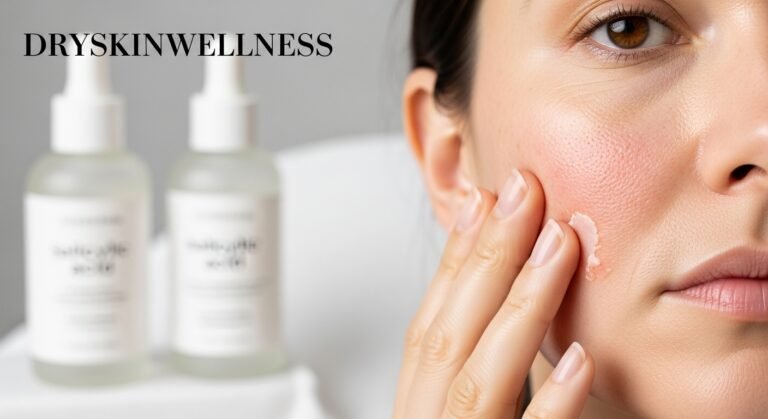Understanding | Does Sperm Die When It Dries On Skin?
The internet is teeming with myths and misconceptions, particularly regarding the human body and health. Among the most frequently asked questions is the fate of sperm when it makes contact with the skin. A notable lack of consensus remains despite the overwhelming volume of search queries and discussion forums.
With health being an evolving discourse, you must equip yourself with accurate information, especially concerning reproductive health. Does Sperm Die When It Dries on Skin detailed journey to decipher the truth regarding the lifespan of sperm on the skin and the potential risks and implications.
Sperm Viability: The Lifespan Outside the Body
Sperm cells, the microscopic heroes of the reproductive process, are surprisingly resilient. When moist, sperm can live for several days in the reproductive tract. However, their lifespan dwindles drastically when exposed to external factors, including air and the skin’s environment.
Understanding the Factors at Play
Various factors influence the survival of sperm outside the body:
- Temperature: Sperm thrive in temperatures slightly lower than the body’s core. The ambient temperature on the skin surface is generally higher and less hospitable.
- Moisture Levels: Dry environments accelerate the desiccation of sperm, significantly reducing their lifespan.
- pH Levels: The acidity of the skin’s surface can be detrimental to sperm, though brief exposure may not pose a significant threat.
- Time: Time is not on the side of sperm once they leave the body. Unlike in liquid environments, longevity is measured in minutes.
Health Implications of Skin-Sperm Contact
The fear or eventuality of skin coming into contact with sperm prompts the critical question: is it a health hazard? In most cases, the risks are minimal.
Rethinking the ‘Fertile Crescent’
The ‘fertile crescent on the abdomen’ does not offer the longevity needed for sperm to reach its intended destination. While pregnancy is theoretically possible through microscopic breach, it is extraordinarily unlikely in practice.
Hygiene and Risk Mitigation
Sperm exposure calls for swift action, emphasizing the importance of hygiene. Prompt washing with soap and water aids in reducing sperm viability, alongside the possibility of conception, practically nullifying pregnancy risks.
Medical Perspective: Dispelling Misconceptions
Medical professionals often act as the bastions of factual health information. Let’s delve into their insights to provide a clearer view of the fate of sperm on the skin.
Voices of Authority
Obstetricians and gynaecologists are quick to dispel myths about sperm survival, highlighting the medical reality that the likelihood of pregnancy due to residual sperm on the skin is statistically negligible.
Best Practices for Sperm Hygiene
The consensus among medical circles is to employ caution but not panic when sperm and skin meet. Quick showering and avoidance of contact with the partner’s genital areas can further minimize improbable risks.
Debunking Myths Around Sperm Lifespan
Numerous myths that continue to propagate are entrenched in the lore of reproductive health. It’s time to challenge these misconceptions.
Separating Fact from Fiction
The internet is rife with anecdotal evidence and stories painting worst-case scenarios. However, scientific literature and medical professionals provide a much-needed anchor of reason, transitioning the narrative from fear to informed decisions.
Common Misconceptions Addressed
Myths range from the “five-second rule” for sperm to the notion that it could be impregnated through a variety of improbable means. By addressing these misconceptions directly, we pave the way for a more grounded discussion of reproductive health.
FAQ
Q: How long can sperm survive on the skin?
A: Sperm survival on the skin highly depends on various factors, including temperature, moisture levels, and time. In general, sperm cells have a significantly reduced lifespan outside the body and are unlikely to remain viable for more than a few minutes.
Q: Can I get pregnant if semen gets on my skin?
A: While sperm exposure to the skin does come with a theoretical risk of pregnancy, it is highly unlikely in practice. Practising good hygiene, such as promptly washing the affected area, can decrease potential risks.
Q: Are there any health risks associated with sperm on the skin?
A: In most cases, there are minimal health risks associated with sperm on the skin. However, good hygiene practices can help mitigate any potential risks.
Q: What should I do if sperm comes into contact with my skin?
A: The best course of action is to promptly wash the affected area with soap and water to reduce sperm viability and minimize any potential risks. Additionally, avoid contact with your partner’s genital areas to decrease the chances of pregnancy further.
There is no cause for panic, but it’s always best to err on the side of caution. Consult a medical professional for personalized advice if you have any concerns or questions. Remember, knowledge is power in making informed decisions about your reproductive health.
Time Duration
How long does it take for sperm to dry? Sperm can dry quickly on the skin, usually within a few minutes. Factors such as temperature and moisture levels can affect drying time, but it is generally not a lengthy process.
Practicing good hygiene and promptly washing off any semen on the skin can help prevent potential risks or discomfort. If you have concerns about sperm exposure or reproductive health, consult a medical professional for personalized advice.
So, it’s best to take swift action and practice good hygiene when dealing with sperm on the skin. By understanding the facts and debunking myths surrounding sperm survival on the skin, we can make informed decisions about our reproductive health and alleviate unnecessary fears or worries. Remember, knowledge is power in caring for our bodies and making responsible choices for our well-being.
Conclusion: Sperm Survival on Skin
It is vital to separate fiction from fact “ Does Sperm Die When It Dries on Skin” It’s vital to know about health awareness and reproductive education. While sperm can retain some viability on the skin, the likelihood of negative health outcomes or pregnancy is minimal with reasonable hygiene practices.
As with any health topic, it’s essential to consult reputable sources and professionals to ensure you’re receiving accurate information. Understanding the realities behind myths surrounding sperm survival can lead to a more informed and relaxed perspective on reproductive health. Remember, knowledge is power; in the context of sperm on the skin, it’s also peace of mind.





